Search Images
Browse Content (p. 1082)
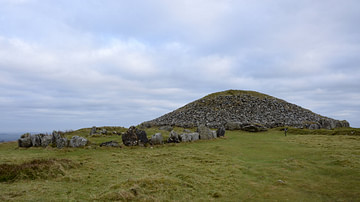
Image
Loughcrew Cairns
5,000-year-old megalithic cairn in the Boyne Valley, Ireland.
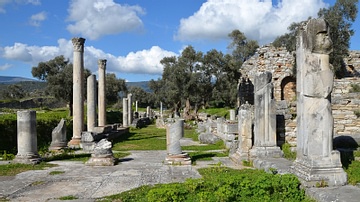
Image
The Agora of Iassos
The Agora of Iassos, reconstructed mainly during Hadrian’s time, its initial building must have started in the 4th century BC.
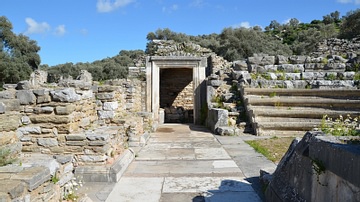
Image
Scaena of the Bouleuterion of Iassos
The scaena (stage) of the Bouleuterion of Iassos decorated with opus sectile (marble inlay).
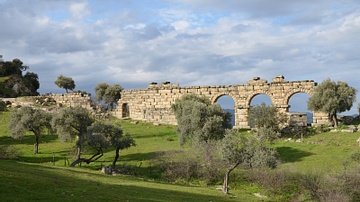
Image
Aqueduct of Alinda
The 45 meter section of the Roman aqueduct of Alinda with 4 remaining arches.
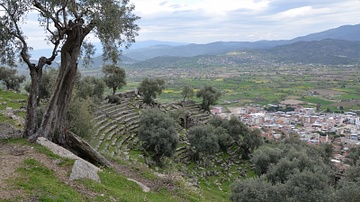
Image
Theatre at Alinda
The ruins of the early 2nd century BC theatre, Alinda, Caria, Turkey
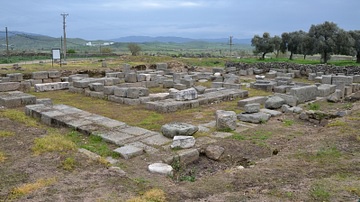
Image
Ionic Temple of Apollo Isotimos
The ruins of the Ionic Temple of Apollo Isotimos in Alabanda, built in the 2nd century BC.
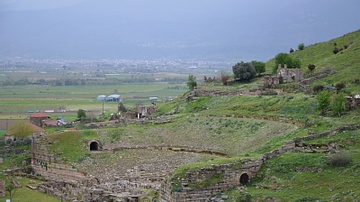
Image
The Hellenistic Theatre of Alabanda
The Hellenistic theatre of Alabanda, located on a natural south-facing hillside. The theatre could hold 6,000 spectators in its early phase. In the Imperial period, gladiator and animal combats were increasingly in demand and a new design...
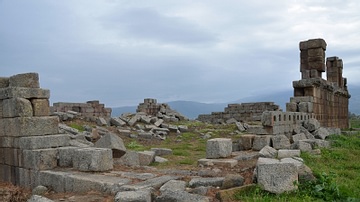
Image
Bouleulerion, Alabanda
The Late Hellenitic Bouleulerion (concil house) of Alabanda. The interior of the building has a rectangular plan measuring 36×36 meters.
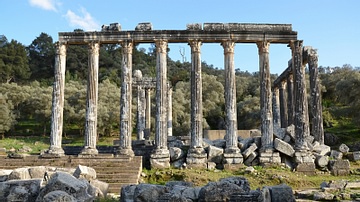
Image
Temple of Zeus Lepsynos at Euromos
Temple of Zeus Lepsynos at Euromos, built in the 2nd century AD on the site of an earlier Carian temple.
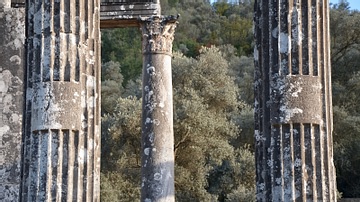
Image
Columns of the Temple of Zeus Lepsynos, Euromos
Inscriptions on the flutted columns of the Temple of Zeus Lepsynos at Euromos celebrating the donors who financially supported the construction of the temple.